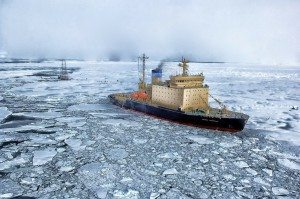
According to the National Bureau of Labor Statistics, job growth in the Environmental Science field is projected to be 5% through 2031. This estimate, which is considered average growth, is conservative considering the environmental challenges facing the planet across all industries. Pursuing a degree in Environmental Science offers one of the best returns on your investment. There are plenty of career paths that pay great and offer high job satisfaction. Here is everything you need to know about completing your degree, as well as the wide selection of jobs with an environmental service degree available to graduates.
Earning an Environmental Science Degree
Today’s educational climate offers you a couple of choices for pursuing your degree. Instead of the traditional route, you can opt to complete your courses online. The only catch is, depending on your chosen career path; you may have to go to a physical campus for a course or two. Here is a list of topics studied in pursuit of an Environmental Science degree.
- Climatology
- Ecology
- Wildlife & Fish Conservation
- Water Science
- Water Policy & Management
- Human Impact on the Climate
- Environmental Law
- Urban Forestry
- Sustainable Ecosystems
As you can see from this list, there is a wide spectrum of career paths available for Environmental Science majors. The specialization you choose determines whether or not you need to continue to graduate studies. For example, graduate school is a requirement if you want to become an environmental lawyer or an Environmental Studies professor. Those who want to pursue a career in pure research also go on to get their doctorate.
With that being said, there are several environmental science careers available to those who hold a bachelor’s degree. Environmental science degrees allow students to gain a broad overall understanding of both biological and physical sciences. Students enrolled in environmental science programs complete general education classes, as well as a couple of upper division courses in Math. Math plays an important role in environmental science since most professionals also work with environmental data that must be analyzed. The rest of the credits are filled with classes on the topics in the list above, with an additional number of credits in your specialization.
What Jobs Can You Get with an Environmental Science Degree?

A typical misconception of a degree in the Sciences is the only job option involves wearing a lab coat and researching some obscure scientific breakthrough. This misconception is especially false when it comes to Environmental Science. What can you do with an environmental science degree? Environmental scientists handle growing the food we eat, treating the water we drink and solving problems such as energy scarcity and the climate change crisis.
Environmental health covers a broad area of study. A person who analyzes chemical levels in a town’s water supply and a person who studies the effect of deforestation on the local ecosystem are both environmental scientists. Environmental scientists are also concerned with the impact these have on human health.
The Bureau of Labor reports that the job outlook for environmental scientists and specialists is growing at an average rate of 5% through 2031. This growth represents an additional 3,800 jobs each year between 2021 and 2031. The median pay for these positions is $76,530/year. States with the highest number of environmental science jobs are:
- California – 11,850
- Florida – 4,860
- Texas – 3,870
- North Carolina – 3,710
- New York – 3,680
The salary for environmental science degree jobs can vary significantly depending on location. The states with the highest pay for environmental scientists include:
- Washington, DC – $118,430/year
- Massachusetts – $104,010/year
- California – $101,190/year
- New Jersey – $98,650/year
- Colorado – $91,210/year
Resource Management Jobs
Every single water treatment plant in the country employs at least one environmental scientist to ensure the water is safe to consume. They also study local impacts of man-made pollutants on the surrounding ecosystem in relation to its effect on the water supply.
“Big AgriBusiness” is a huge employer of environmental scientists who specialize in Horticulture. Gone are the days of the small-time farmer who goes with his gut when he plants his crops. Farms are now essentially massive factories responsible for feeding hundreds of millions of people. Things like planting schedules, nutrient mixtures, cloning, and breeding are all now done by an environmental scientist to maximize yield and genetic strength.
One of the best paying jobs in environmental services is an environmental engineer. An environmental engineer applies the principles of engineering, science, and math to address environmental challenges and issues. They focus on finding solutions that protect and improve:
- the natural environment
- public health
- overall sustainability
Environmental engineering professionals work on a wide variety of projects and issues including:
- water resource management
- air quality management
- waste management
- pollution prevention and remediation
- sustainable development
According to the Bureau of Labor Statistics, the job outlook for environmental engineers is positive, with 4% growth expected through 2031. The median pay is $96,820/year and the entry level education is a bachelor’s degree.
Another of the top jobs for environmental science majors in the area of resource management is a conservation scientist. These environmental professionals manage the land quality of forests, parks, and other natural resources. They might work for government agencies or social advocacy organizations. They have an awareness of environmental issues that impact land quality and work to preserve the integrity of the land.
As environmental concerns grow, the job outlook for conservation scientists is favorable. According to the Bureau of Labor Statistics projects average growth through 2031. The median annual wage for conservation scientists is $63,750/year.
Environmental Advocacy Jobs

Non-profit organizations are another big employer of environmental science graduates. This is the career path for those who want to be on the front line of making a difference. While the pay may not be as great as some of the other options, it is an excellent opportunity for networking. Many Eco- activist groups recruit environmental scientists to provide concrete statistical analysis that supports the specific change for which the group is advocating. They also perform the preliminary research that is the foundation for any proposed policy change.
Environmental law one of the most popular environmental science careers for those who want to affect environmental policy. While this path requires more schooling than the others, it is also the most rewarding. A legal case involving a business in violation of environmental law often involves millions of dollars. These cases earn you a hefty commission while providing you a forum to defend Mother Nature. The BLS reports a faster than average job outlook of 10% through 2031. The median pay was $127,990/year in 2021 which is also above average.
Animal lovers are best fit for a career in zoology. This can involve anything from working at zoos and wildlife reserves, to working in foreign countries advocating for habitat conservation. Daily duties include interacting with rare and exotic animals and researching ways to help these species adapt to their changing environments. While the BLS reports little or no change projected in relation to job growth, if zoology is your passion, it may be worth pursuing for you. The Median pay for a zoologist and wildlife biologists is $64,650/year.
Research and Teaching Jobs

If you have a passion for research and shaping young minds, then the professorship avenue is right for you. This requires a doctorate, but most programs offer paid experience in the form of teaching undergraduate courses as a Graduate Assistant. This gives you teaching experience while allowing you to absorb information from some of the best minds in the field.
With today’s issues regarding climate change and energy scarcity, it is safe to assume that these two areas will see steady growth in years to come. Environmental scientists in the energy sector occupy a variety of roles. There are some whose job is to analyze how to extract, utilize, and distribute resources like oil and coal effectively. Others have the job of studying how we can start using alternative energy sources like solar, the wind, and water to replace our finite fossil fuels.
Solar is one industry in particular that is experiencing explosive growth. These solar companies are shelling out big salaries to scientists so they can develop more effective solar panels.
One popular environmental science degree job for those interested in academia or research is the role of a geoscientist. These environmental professionals study the earth and its processes to better understand:
- structure
- composition
- history
Geoscientist professionals use various scientific disciplines to analyze and interpret data. Their work can be applied to a variety of fields including:
- environmental protection
- resource exploration
- hazard assessment
- land use planning
They can perform geological surveys and environmental assessments. Geoscientists with an advanced degree can teach college courses or conduct research. The job growth for this area is projected to be 5% through 2031. The median pay rate is $83,680/year.
Climate studies is another area that is set to experience explosive growth. While some areas of the country have chosen to deny the importance of climate change, the reality is globalized industrialization has drastically sped up the process. The United States government employs hundreds of scientists whose sole job is figuring out how to reduce the country’s carbon footprint. Many industries in the private sector have also invested in reducing their environmental impact. As the country becomes more “green”, the pockets of environmental scientists become greener as well. The Bureau of Labor Statistics projects 8% employment growth for climatologists through 2031. The median annual wage is $94,570/year which is above average. Climatologists are trained in areas like geography, environmental sciences and chemistry. They also have training in mathematics and statistics. While a bachelor’s degree is required for most entry level positions, research and academic positions require an advanced degree.
How Can I Advance My Career in Environmental Science?
Advancing your career in environmental science requires a combination of education and experience. Networking and professional development can also help take your career to the next level. Here are some steps you can take to boost your resume and prepare for your next career move.
Additional Education: Consider pursuing an advanced degree in environmental science or a specialized area of interest. An advanced degree can provide you with in-depth knowledge and research experience that can make you more competitive in the job market.
Professional Certifications: There are several professional certifications that you can use to demonstrate your commitment to the field. One of these is the LEED or Leadership in Energy and Environmental Design and the other is GIS or Geographic Information Systems. If your area of environmental science includes certification options, it may be worthwhile to add these to your resume.
Network and Join Professional Organizations: You can connect with like-minded professionals at conferences and workshops. Joining environmental science associations and scientific research organizations can provide access to valuable resources and job opportunities.
Seek Leadership Opportunities: If you are already working in an area of environmental science, you can look for opportunities to take on leadership roles. Offering to lead a project can show your supervisors that you are ready to advance your career. Demonstrating strong leadership skills can lead to a promotion or increased responsibility (which often results in a pay increase!)
Stay Committed to Environmental Issues: Employers often seek employees who are dedicated to making a positive impact on the environment. Showing genuine passion and commitment will go a long way toward building rapport within your organization and the field.
While career advancement may take time and dedication, in most cases it is worth it. By being proactive and remaining open to continuous learning, you can reach your career goals and position yourself for success.